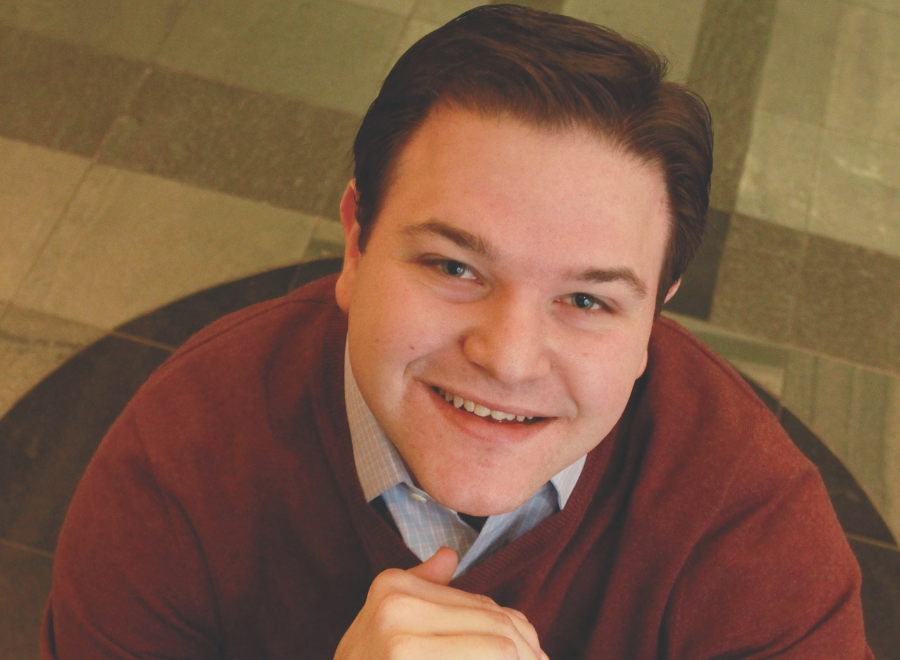Peter J. Schwartz is co-author of the best-selling book Baseball as a Road to God: seeing beyond the game. On a trip to his Toronto hometown, he spoke with David Wilson.
David Wilson: Did the classroom experience easily translate into print?
You may unsubscribe from any of our newsletters at any time.
Peter J. Schwartz: You can’t approach a reader in the same way as you approach students in the classroom. So we had the idea of dividing the book into nine chapters, or innings, with religious themes. We talked for hundreds of hours at John’s kitchen table on weekends, and we would write up the different stories and anecdotes and themes that we discussed, and John would edit them.
DW: Can you tell me how the course at NYU evolved?
PJS: In November 1999, when John was dean of the NYU school of law, a student said to him, to paraphrase, “I think baseball is silly. I don’t understand why anyone would find it interesting.” John took up the challenge and said, “Well, if you do an independent study with me and I assign 12 books to you, you will see at the end how baseball is actually a road to God.”
It became kind of campus news that the dean of the law school offered this independent study. I was an undergraduate at the time, and I asked to do the same. Then so many other students asked to do the same thing that John changed it from an independent study into a course.
DW: The course description says students are required to read over two-dozen books and produce weekly papers. To the uninitiated, a course on religion and baseball might sound like a bit of a bird, but this seems like the real deal.
PJS: Any student who comes in thinking this will be easy is very quickly reminded it’s not. There’s a lot of heavy theological reading that sets the foundation for the baseball discussions that emerge. Everyone who wants in has to write a paper first. It’s an undergraduate course, but there are no freshmen. One of the few exceptions was last semester — one of the freshmen had played with the Chicago Cubs.
DW: What makes baseball special? Couldn’t you make a case for any number of sports being some kind of a road to God?
PJS: In no way is the course or the book triumphalist. We’re open to someone making an argument that hockey or basketball or football or soccer can be a road to God. But I think baseball is different. It’s timeless; there’s no clock ticking down — a game could last into infinity. The field dimensions stretch forever. And the game has patterns. A full count in the seventh inning of a game in May means something completely different in September or October.
DW: The book makes a compelling case about baseball’s religious echoes: infinity and timelessness, the geometrical elegance of the game, the resurrection that occurs each spring, the miracles that happen within the course of a season.
PJS: To me, the quality that distinguishes baseball the most is that sense of the liturgical calendar: the renewal of spring and the climax in October. The holiest of high holy days is the seventh game of the World Series.
DW: Except if you’re a Blue Jays fan, the season ends in bitter disappointment.
PJS: But that brings you back to “Wait until next year.” To the promise of renewal.
DW: It doesn’t always lead to glory or the Kingdom, believe me.
PJS: Not always, but that’s what makes it interesting: curses that become blessings. When the Red Sox won [the World Series] after 86 years, when the White Sox won after 88 years, it held a special resonance to those fans, as it did in Brooklyn in 1955 after 65 years, as it would on the north side of Chicago if the Cubs were ever to do it.
DW: I was intrigued by the link the book makes between baseball stories and religious allegory.
PJS: Baseball stories can be lessons about a greater truth — Christy Mathewson the saint versus Ty Cobb the sinner, for example. The comparisons are not only revelatory; they’re also fun. I don’t think you get that in other sports.
DW: So if baseball can lead to God, do you think God has a favourite team?
PJS: It’s a fun question, but when we say “God,” we mean the experience of God, not the anthropomorphic God in the clouds, picking and choosing who might win, or the God that Robbie Alomar points to in the sky after hitting that home run in Oakland in the 1992 American League championship.
DW: What are the classes in the course like? Do you have 25 baseball trivia geeks competing against each other?
PJS: The early classes focus more on baseball, but as the students familiarize themselves with [religion] writers like William James and Mircea Eliade and Rudolf Otto, and look at the baseball books through those lenses, the discussion is elevated. You’d be surprised by how the class is largely folks whose core interest is religion — folks with very little baseball background. So it’s not so much about the intricacies and nuances of the game, but whether, for them, baseball is a road to God.
DW: Do you ever go on field trips?
PJS: Every year, near the end of the term, the class goes to either a Yankees game or a Mets game. This year it was the Yankees. First we all played softball — teaching assistants, current and former, versus students. The freshman from the Cubs played with the students. He threw me out at home plate, a triple play from centre. Then we all went up to Yankee Stadium.
DW: Have you ever listened to a ball game on the radio and imagined trying to understand it if you knew nothing about the game? The play-by-play is a language unto itself, as if the game is a reality unto itself.
PJS: There’s a rhythm and pattern that comes across beautifully on the radio. You could argue that a lot of the terms and the language that one might hear at a religious ceremony are only meaningful to the initiated. You can say the same thing about baseball — once you get to know the game, I don’t think there’s anything better than listening to the sounds coming out of the radio on a summer day.
DW: Because like a good religious experience, it takes you to another reality.
PJS: It certainly does for us.
This interview has been condensed and edited.
***
This story first appeared in The United Church Observer’s June 2014 issue with the title “The quality that distinguishes baseball is that sense of the liturgical calendar.”













